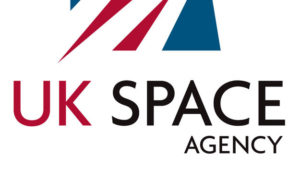
The UK is in turmoil and is facing a very uncertain future due to its desire to leave the European Union. Industry is unsettled and the space sector is no different. What could the possible implications be for the UK space industry post-Brexit and how can a way forward be found? Helen Jameson, Editor-in-Chief SpaceWatch.Global mulls it over.
The Brexit Mess and UK Space
On 23rd June 2016, the UK voted to leave the European Union. Since then, the country has been plunged into uncertainty where voters have been left questioning their decisions, where divisions have opened up not only in the government, but between friends and families – yes, it’s a fact. As a Brit, when I switch on the news, I am constantly bombarded with Brexit. The UK government has become obsessed with Brexit, to the exclusion of other, extremely important issues.
There is plenty of game-playing, back-stabbing, political point-scoring – and all of this is doing nothing to help the central question of how we make this work, how we identify a way forward. At the moment, it’s deadlock and we look to be heading for No-Deal. We need constructive thinking and co-operation to get out of this – and this is what business leaders in the UK are really looking for.
On Wednesday, we saw the deal that was on the table rejected by the House of Commons. Then we saw a vote of no confidence in the Prime Minister, which failed. So which way now and what happens next? That’s a rhetorical question, by the way.
I’ve worked in the industry as a journalist for over 10 years and I love it. It’s fascinating, exciting, it constantly pushes boundaries – and I am proud of the UK’s standing in the space sector. It’s been undergoing a revival in recent years and we have so much to look forward to. UK space companies are doing great work. We have spaceports on the horizon, we have a thriving small satellite industry, with an exceptionally skilled workforce and the sector is growing.
 The UK has become an increasingly significant player in space. The UK has got an overall, well-defined vision of where it wants to go in space. It is very much concerned with business applications and it has no near-term ambitions to become involved in human spaceflight, for example. The UK is inspired by the NewSpace movement and a study by ESPI confirmed that the UK is the country in Europe where the most NewSpace investments are being made. There is an exciting and flourishing smallsat industry – just look at SSTL and ClydeSpace. There is also the Harwell Space Cluster, a group of 80 organisations and part of the UK strategy to increase its share of the rapidly expanding world space market to 10% by 2030. There is the iconic Goonhilly Teleport which, led by Ian Jones, is expanding its commercial (and educational) opportunities and has even branched out its business to Australia. In short, there’s a lot going on and a great deal to be proud of in space here in the UK.
The UK has become an increasingly significant player in space. The UK has got an overall, well-defined vision of where it wants to go in space. It is very much concerned with business applications and it has no near-term ambitions to become involved in human spaceflight, for example. The UK is inspired by the NewSpace movement and a study by ESPI confirmed that the UK is the country in Europe where the most NewSpace investments are being made. There is an exciting and flourishing smallsat industry – just look at SSTL and ClydeSpace. There is also the Harwell Space Cluster, a group of 80 organisations and part of the UK strategy to increase its share of the rapidly expanding world space market to 10% by 2030. There is the iconic Goonhilly Teleport which, led by Ian Jones, is expanding its commercial (and educational) opportunities and has even branched out its business to Australia. In short, there’s a lot going on and a great deal to be proud of in space here in the UK.
What we must remember is, that like many other industries, the space industry in the UK is inextricably linked with the EU Member States. We have built up valuable supply chains. We take talent from the EU and we export it. Most of all, this is mutually beneficial to both the UK and EU. There are many nationals living in and working in the UK space industry and we thrive on their capabilities, and vice versa. However, there has been a significant drop in capital investment in the UK as a result of the referendum result. It is already having an impact on the economy and is threatening businesses across the board. The implications of Brexit to the UK space industry, whether there is a deal reached or not, have the potential to be very significant.
Taking the Hit(s)
There has already been a considerable amount of damage done by Brexit to UK space and its involvement in EU projects. Let’s look at a couple of examples of UK companies that are facing challenges due to Brexit uncertainty.
SSTL, as previously mentioned, is one of the flagships of the UK space industry and has been a pioneer in small satellite manufacturing since 1981. However, in November last year, the company revealed that is will move the sensitive work it is completing on the European Galileo project, over to Europe. As reported in the Financial Times, this is due to the fact that the company will be ‘unable to carry out a classified test on the navigation payload it supplies to Galileo after Britain has left the EU at the end of March 2019’.
 In November 2018, it was reported that the UK government was unlikely to ever recover the $1.2 billion that it has invested in the Galileo project, which is being built as a rival to the U.S. GPS system to give sovereignty to the European Member States. By December, talks between the EU and UK on Galileo were ended. The UK has had great involvement in the Galileo Public Regulated System (PRS) and much of it has been developed by UK scientists and engineers. However, after Brexit, due to security risks, the UK will be locked out of Galileo and the work on the PRS will come to nothing. Several UK companies have built components for the system and one of the two monitoring centres that was based at Swanwick will now be moved to Spain.
In November 2018, it was reported that the UK government was unlikely to ever recover the $1.2 billion that it has invested in the Galileo project, which is being built as a rival to the U.S. GPS system to give sovereignty to the European Member States. By December, talks between the EU and UK on Galileo were ended. The UK has had great involvement in the Galileo Public Regulated System (PRS) and much of it has been developed by UK scientists and engineers. However, after Brexit, due to security risks, the UK will be locked out of Galileo and the work on the PRS will come to nothing. Several UK companies have built components for the system and one of the two monitoring centres that was based at Swanwick will now be moved to Spain.
For SSTL, this news was devastating as the company has been involved in the project since 2003 and has been producing the navigation payloads for the satellites in its Guildford factory. Work on the project is expected to dwindle. Prime Minister, Teresa May, has already announced that the UK will build its own, independent GNSS system and that this will be worked on with the U.S., Australia, Canada and New Zealand.
Very recently, the news emerged that UK-based Inmarsat is set to move its European Aviation Network out of London as a result of the Brexit threat. The move, expected to happen before April, will see EAN operate out of Luxembourg but Inmarsat itself will remain headquartered in London.
In a statement, the company said: “With effect from the date of Brexit, Inmarsat Ventures SE, the entity which was granted the MSS 2GHz award and national licences, will no longer satisfy the establishment condition required pursuant to the MSS 2GHz award as a result of the UK leaving the EU,” Inmarsat said in its statement. “To this end, Inmarsat Ventures SE will be re-domiciled in Luxembourg, meaning that the award and national licences will be retained at all times by Inmarsat Ventures SE.”
The company has a licence which allows it to operate S-band services on its EAN service within the European Union. EAN, in partnership with Deutsche Telekom, supports inflight connectivity across all member states of the EU as well as Switzerland and Norway. EAN combines high capacity satellite coverage with a complementary 4G LTE ground network to provide high-speed connectivity across the 30 European nations.
The UK will still continue on as a member of ESA and EUMETSAT but is unlikely to play any further role in other projects such as Copernicus, the EU earth observation programme or will face severely restricted access to certain data from the system due to security reasons. It could also impact UK involvement with SST (Space Surveillance and Tracking) and Space Situational Awareness (SSA) initiatives, which are important in terms of security and collision avoidance.
An Industry Making its Own Luck
The UK is at a crucial tipping point in its history – and businesses, including those in the space sector need to be proactive like never before. Larger space firms must be looking for international opportunities as well as ones here in the UK so that, in the event that we leave with no deal whatsoever, they are prepared and have irons in the fire already. This isn’t as easy for smaller businesses, but there is a framework out there to help. The Satellite Applications Catapult, for example, and the Harwell Space Cluster are just two examples of excellent organisations that have been created to encourage growth across the economy through the space sector.

I think this article has sounded rather pessimistic throughout, so let’s balance it out.
On the one hand Brexit will change the status quo. It’s a new world order for the UK and that’s difficult to come to terms with. However, with change can come opportunity. This could represent a golden chance to leave the comfort blanket behind and get out into the wider world. The UK can forge new relationships and create a new network of partners and investment to push the space industry in the UK further than we could ever have imagined.
Whilst we wait for the politicians to sort out the mess that is Brexit, the UK space sector can’t afford to stand still and will, to a large extent need to be focused on making its own luck. Who knows what might happen tomorrow. The twists and turns of Brexit are far from over yet. It is, however important that the UK space industry continues to reach for the stars.
Bio: Helen Jameson is Editor-in-Chief of SpaceWatch Global and founder of SpaceScript, a copywriting company specialising in the space industry. Previous to establishing SpaceScript, Helen was Managing Editor of the Satellite Evolution Group and also worked with industry association GVF.





